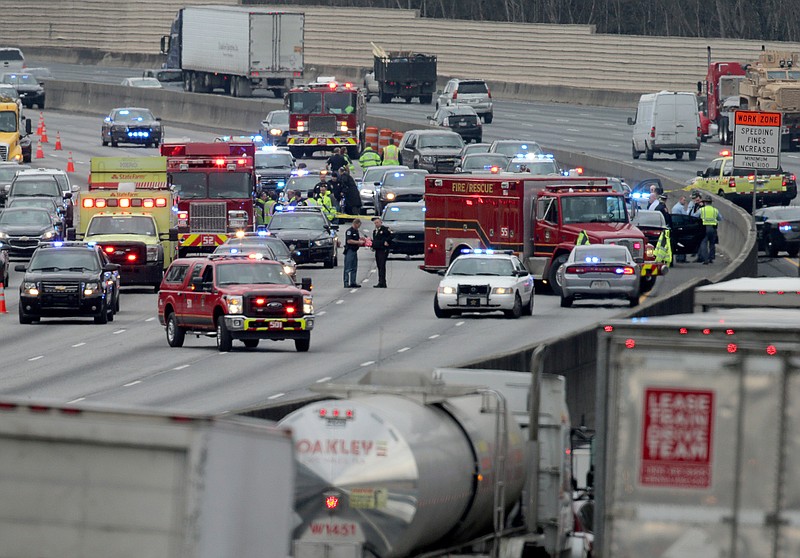On the last day of this year's session, the Georgia Legislature passed a bill that curbs how much evidence police officers can see against themselves in a pending shooting case.
House Bill 941 passed the Georgia House on a 156-0 vote Thursday, two days after the Senate passed the bill. Georgia Gov. Nathan Deal has 40 days to decide whether to sign the bill into law, veto it or allow it to become law without his signature.
In cases where an officer shoots someone, the bill limits how long he or she can sit in on a hearing where grand jurors hear evidence the shooting was illegal.
Now, officers can watch the whole hearing, seeing the evidence that prosecutors may one day bring against them in a trial. Officers also can testify about their version of events.
HB 941 would allow officers in the grand jury room only to give testimony. And unlike now, officers could face cross-examination by prosecutor or jurors.
The bill also creates another potential avenue for oversight. If the grand jury declines to indict the officer, jurors will make a public report explaining the evidence and their decision not to indict. And the local district attorney will make the evidence and transcripts from the hearing available to the public.
Amid nationwide debate on use of force by police officers, state Rep. John Deffenbaugh, R-Lookout Mountain, said the bill would prevent officers from seeing evidence that could mold their defense before a potential indictment.
"They aren't going to be in there trying to match their story to the events that happened," he said. "It just expands a little bit on the information that the grand jury got."
Added State Rep. Tom Weldon, R-Ringgold: "This was a measure to preserve the sanctity of the grand jury process."
But some critics think HB 941 does not reform the grand jury process as thoroughly as possible.
The Rev. Francys Johnson, state president of the Georgia NAACP, praised the bill for adding transparency to the process and holding police officers more accountable. But he said in a news release it does not go far enough.
"Local prosecutors still have to rely on local police departments to gather the evidence and testimony they need to successfully prosecute criminals. This make it hard for them to investigate and prosecute the same police officers in cases of police violence," Johnson wrote.
He asked state lawmakers to look at "Born Suspect," an NAACP report published in September 2014 that pushed for more anti-racial profiling laws. Suggestions include penalizing officers who profile, as well as mandating data collection for all stops and searches. The report also called for a ban on "pretextual stops" for minor traffic violations that lead to drug searches.
Johnson also suggested legislators consult with "Campaign Zero," a sweeping agenda published by some Black Lives Matter activists last year. Among the ideas promoted: Requiring independent, external police departments to investigate all officer-involved killings and serious injuries, as well as a similar setup for prosecutors.
Catherine Bernard, a Republican attorney in Brookhaven, Ga., who is running for state representative this year, has also criticized HB941. She said officers should not be in the grand jury room at all. No accused civilian in a similar situation receives the same treatment.
"The very individuals that we are entrusting to keep us safe are subject to a lower standard of review," Bernard testified during a Feb. 12 committee hearing about the bill. "They are subject to this bastardized version of the grand jury system."
Weldon, however, said police officers should be treated differently because of the nature of their jobs.
"There is some benefit to having the officer that is engaged in a shooting be able to give testimony to be able to add to the facts," he said. "They're going to have to make instantaneous decisions [during their jobs]. I think that's probably a good reason to give them access to discuss what they saw and what they experienced."
Deffenbaugh added that officers are held more accountable than common residents, and they deserve to provide their side of the story to a grand jury.
When told that an Atlanta Journal-Constitution investigation found none of the 185 officers who shot civilians from 2010-15 had been brought to trial, Deffenbaugh said officers still get less leeway than a typical person.
"Do you know the conditions of all those shootings?" he asked. "I don't. I'm not going to pass judgment on that."
Contact staff writer Tyler Jett at tjett@timesfreepress.com or at 423-757-6476.

